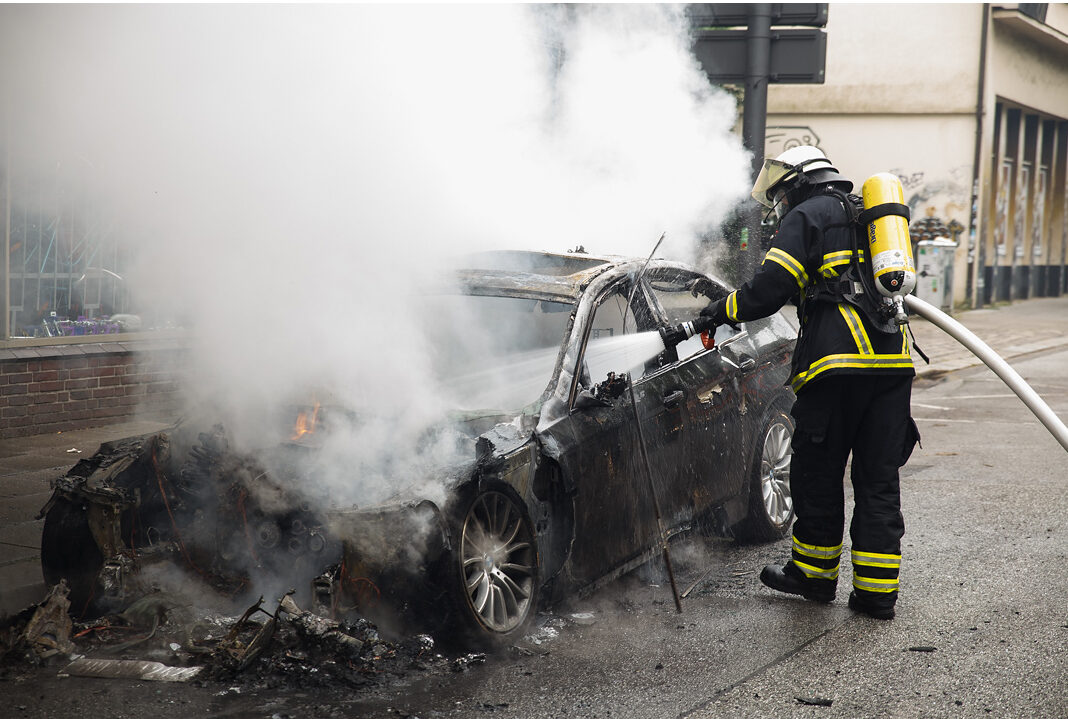An EU directive from 2014 allows police to break the law across borders
Since a special meeting of the European Council in Tampere, Finland, in 1999, the mutual recognition of judicial decisions has been one of the principles of EU policy. The first milestone was the Framework Decision on the European Arrest Warrant in 2002, followed by the Directive on the European Investigation Order (EIO) in 2014. The respective competent judicial authorities of an “issuing state” can thus request an “executing state” to transmit evidence.
However, this does not work for every alleged offence. To this end, the EU states have agreed on a list, borrowed from the EU arrest warrant, of 32 charges, including robbery and extortion, participation in criminal or terrorist organisations, trafficking in human beings, drugs, weapons or stolen motor vehicles, counterfeiting of money, cyber and environmental crime, “facilitating illegal entry” or “racism and xenophobia”.
The EIO must be implemented under the same modalities as if the measure had been ordered by an authority of one’s own country. The Directive specifies “without delay” as the timeframe, but no later than 90 days after the order has been issued. As a rule, the costs incurred must be borne by the executing state.
Through an EIO, the authorities can also demand further investigations in the executing state, such as the spying on financial transactions, the monitoring of telecommunications or even the use of undercover investigators. Interrogation by video or telephone conference or the “temporary transfer of detained persons” is also possible.
An EIO must first be validated in the issuing state by a competent judicial authority, court, investigating judges or prosecutors. If the measure requires judicial authorisation in the executing state, as is usually the case with surveillance, this must also be obtained.
Critics such as the lawyer Stefanie Schork complain about structural deficiencies in the EIO Directive that inadmissibly curtail the rights of accused persons. Among other things, there is no guarantee of effective judicial protection. “The EU has stipulated that legal protection must be guaranteed as in a comparable domestic case. In fact, however, the possibilities are deficient after the transposition of the directive into German law,” Schork tells “nd”. Moreover, the factual grounds of an EIO can only be challenged in the issuing state. In the “Ibiza affair”, the accused Julian Hessenthaler was successful in this even after the fact: at the end of 2020, the Higher Regional Court in Vienna described a radio cell analysis ordered in Germany and tracking of the rental car he used as “unlawful”.
“Whoever tries to obtain legal protection as a defendant, but also as a third party, is in most cases crushed between the incomplete and not necessarily corresponding regulations in the granting and executing state and often ends up without protection,” Schork summarises the problem. The lawyer Johannes Eisenberg, with whom Schork works in a law firm in Berlin, also had to experience this. During the investigation of the “Ibiza affair”, the Austrian public prosecutor’s office had also ordered the radio cell analysis around the two lawyers’ office. Eisenberg had unsuccessfully filed a complaint against this.
The “Ibiza affair” has shown how the EIO can be misused as EU legal aid for political persecution. This can also affect political activists at any time: “I wonder if Hungary, Italy or other EU states will soon have journalists or sea rescuers monitored across Europe with the help of the EIO,” warns journalist Jean Peters, who conducted the first interview with Julian Hessenthaler after his drug prison sentence for “Correctiv”.
Published in German in „nd“.
Image: After the G20 summit in Hamburg, police used EIO’s to investigate left-wing activists in other countries (Montecruz Foto).





Leave a Reply